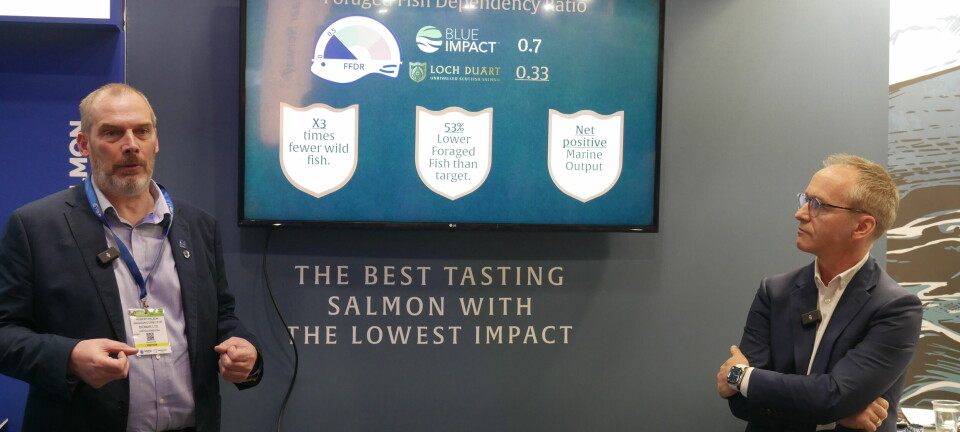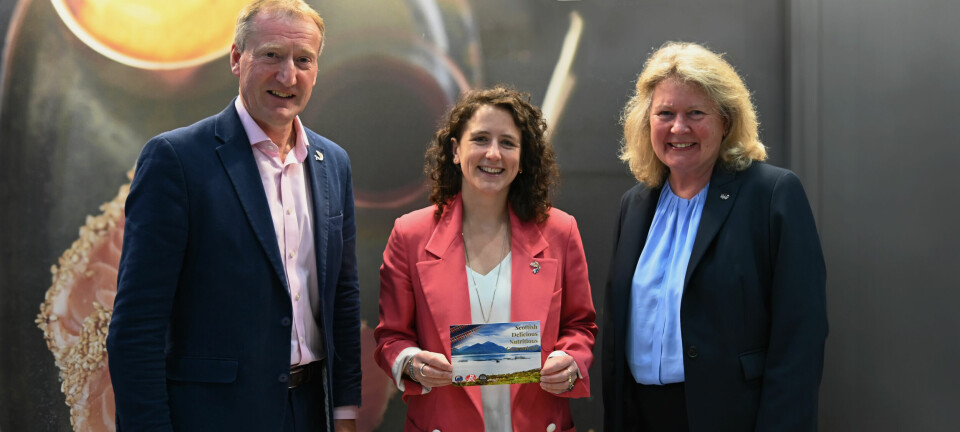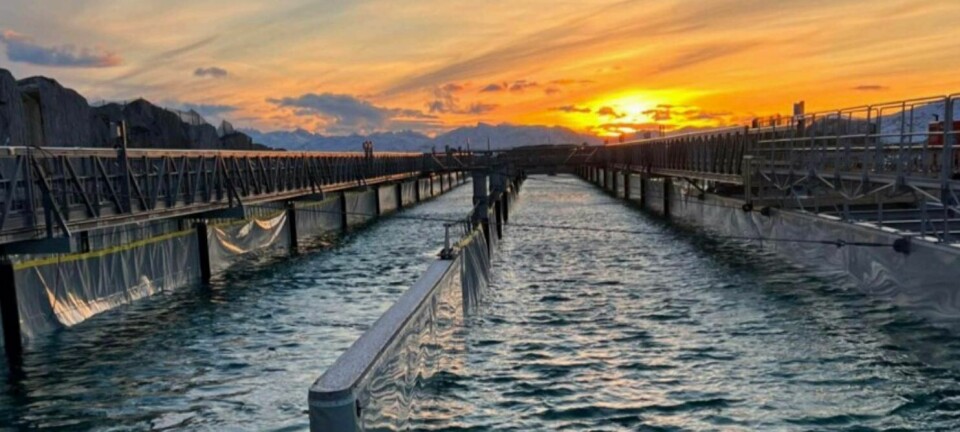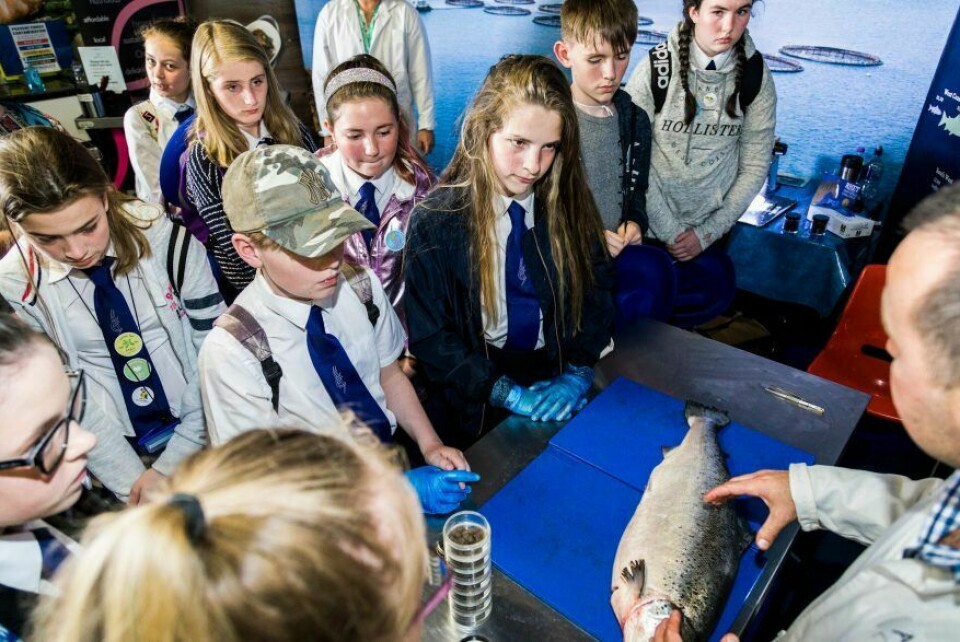
£1m boost to find fish farmers of the future
Fish farming’s efforts to promote itself as a desirable career option for school-leavers have been boosted by £1 million Scottish Government funding to establish Developing the Young Workforce (DYW) Regional Groups in Orkney, Shetland and the Outer Hebrides.
The funding was announced by Jamie Hepburn, Minister for Employability and Training, during a visit to Orkney on Monday.
David Sandison, Shetland-based company secretary of the Scottish Salmon Producers’ Organisation, will co-chair the Shetland DYW with Robert Anderson, who works for local builders Hunter and Morrison, and John Henderson, managing director of engineering and fabrication firm Ocean Kinetics.
Sandison said the funding, which amounts to £100,000 per year for each of the three regional groups, would enhance efforts to make school pupils aware of local career options, including fish farming.
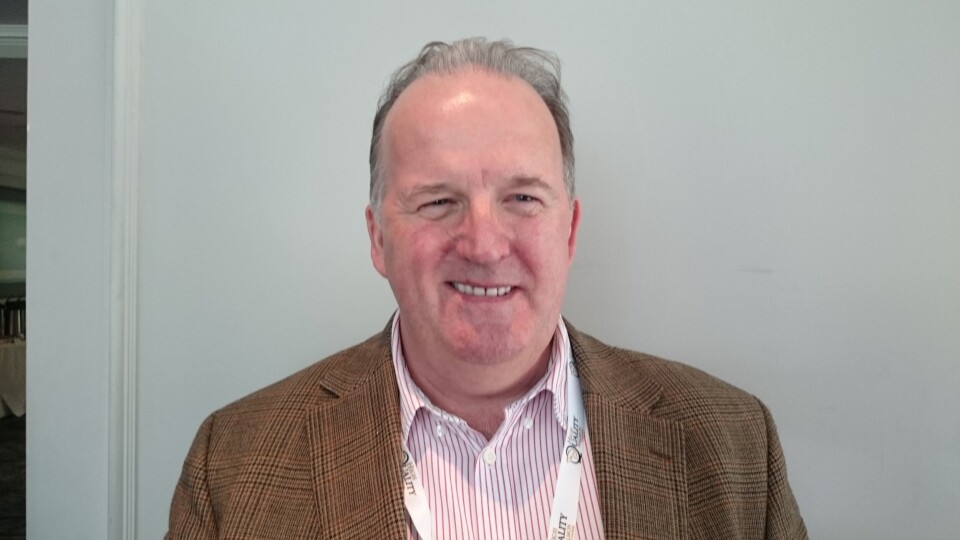
He added: “The DYW group is more about doing work with schools. It is about getting in early, telling people in schools about opportunities that could exist in fish farming, and it’s very much about making sure people are aware of the opportunities in the first place.
Strengthen links
“There is a need to strengthen the links with schools, so that instead of this thing where you phone up the careers service and they send you a lad from school for a week and then he goes back to school again none the wiser, this is a bit more about developing a longer-term relationship between the school and the employer.
“[We want to see] the employer going into the school, talking to the potential workforce of the future, telling them about job opportunities and actually passing a lot of information through the school and basically saying ‘we want you to know that you can come on a taster day or come and get to know more about the potential jobs that are on offer’.
“That’s what this funding will be used for, especially for remote schools and remote parts of the country. That’s the focus, it’s about making things accessible, making sure that people get the opportunity to travel off-island if necessary, so they can go to an employer and see what’s on offer.
“It’s continuous development of what’s already there, but having more focus on things needing a bit more profile: things like schools careers days, things like that, where our industry might not have been terribly obvious. Instead of sitting back expecting that the workforce are going to find out about you, employers have got to push themselves forward a bit.”
Project manager
Sandison said the money would fund a part-time project manager to co-ordinate the activities of the group, along with some of the transport for both employers and school pupils, and the development of some promotional materials, such as poster packs.
Referring the school-leavers, Sandison added: “You can make the entire school cohort aware of the potential for certain careers rather than just assume that you shoot off to college to do whatever and come back with a degree that doesn’t match up to whatever jobs might be available, this is about enhancing the vocational opportunity.
“It might well be it’s combined with a college course, or is a vocational course that’s undertaken as part of an apprenticeship, so there’s a lot of different ways in which people could find a way into the aquaculture industry. It’s not just about feeding fish, some of these jobs are quite high-tech now, with bits of kit that require either good computer skills, good engineering skills, quite hands-on but still quite technically involved.
“There are quite different potential types of career direction which you could take depending on the way in which individuals approach it.”
Good discussions
Sandison continued: “The main thing is to try and get the links between employers and schools, so for instance I’ll be trying to get the main salmon companies in Shetland, Cooke and Scottish Sea Farms [involved]. We have already had some good discussions about this because they are already heavily involved in Modern Apprenticeships. My idea about this is that we start to develop something a bit more tailored and targeted at not just the main high school but some of the remote schools. If you’ve got a small secondary school on an island you want to go and visit that school on a bi-annual basis at least and say ‘Here we go folks, we’re on a recruitment drive, we’ve got a couple of jobs next year’, and really get things moving at an early stage.
"Most folk on island groups will know what the job opportunities are, but it is just about that. Some might not want to stay on the island, they might want a job somewhere else, and aquaculture gives you skills that can be transferable.You can work in different parts of the world and if you want to come back to your own environment at some point you’ve got the right skills to do so."
